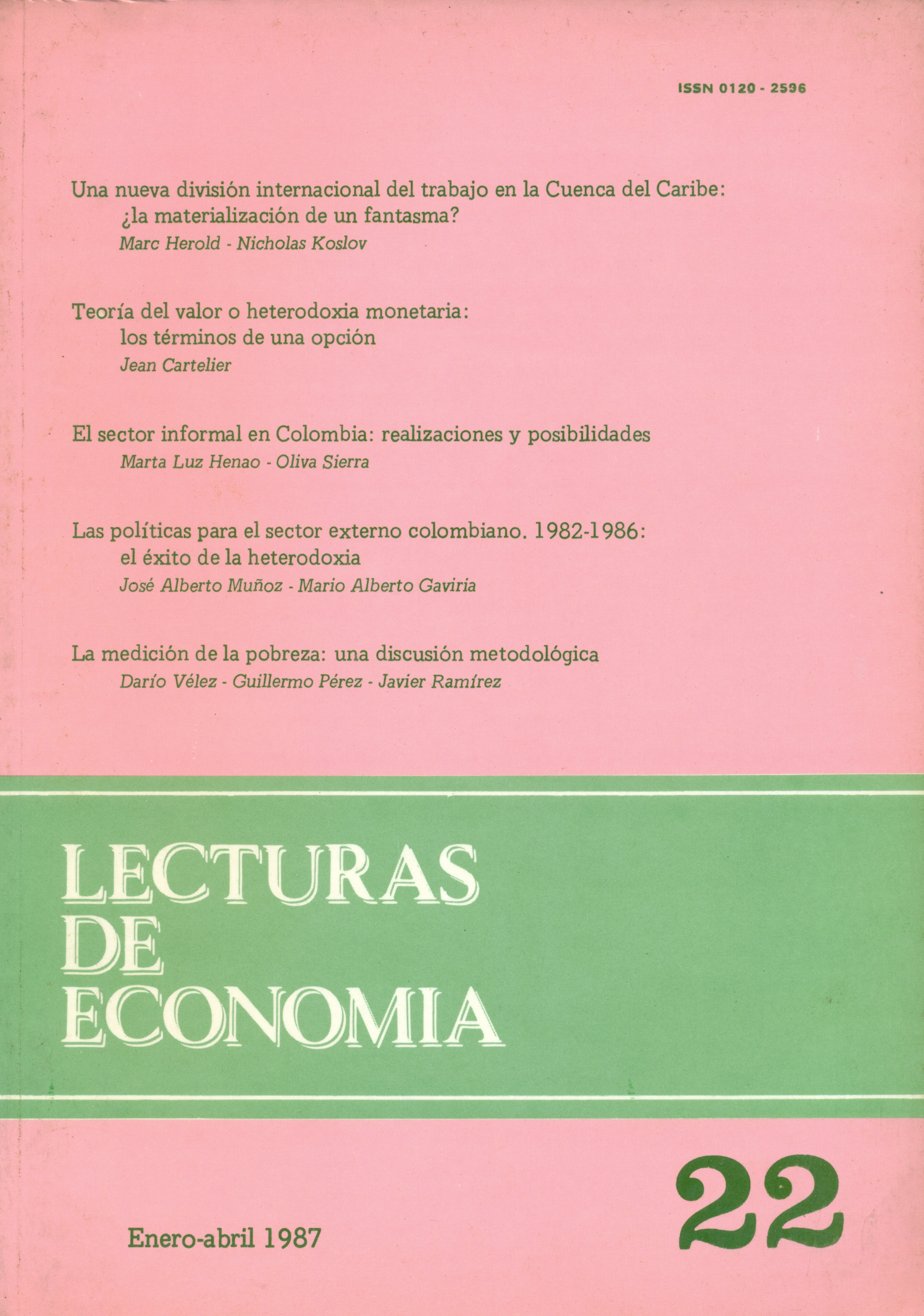Una nueva división internacional del trabajo en la Cuenca del Caribe: ¿La materialización de un fantasma?
DOI:
https://doi.org/10.17533/udea.le.n22a7927Abstract
• Resumen: En la primera parte se discute la pertinencia de la teoría que preconiza la llegada del capitalismo a una "nueva división internacional del trabajo", intentando con ella dar cuenta de las tendencias actuales del capital. Una vez efectuada la crítica a dicha concepción, se analiza el caso de la inversión de las empresas multinacionales estadounidenses en América Central y en el Caribe, el cual no parece respaldar las posiciones teóricas aquí criticadas.
• Abstract: The first part of this paper analyses the theory which has proclaimed the arrival of a new phase of history based on a "New international Division of Labor” as a device to understand the current trends in capitalism. Having developed a theoretical case against that formulation, the paper goes on to consider the investment in Central America and the Caribbean. The empirical evidence presented supports this critical position.
Downloads
Downloads
Published
How to Cite
Issue
Section
License
Copyright (c) 2011 Marc Herold, Nicholas Kolsov

This work is licensed under a Creative Commons Attribution-NonCommercial-ShareAlike 4.0 International License.
This page, by Universidad de Antioquia, is licensed under a Creative Commons Attribution License.
Authors who publish with this journal agree to retain copyright and grant the journal right of first publication, with the article licensed under a Creative Commons Attribution-NonCommercial-ShareAlike License allowing others to share it as long as they acknowledge its authorship and original publication in this journal.
Authors can enter into separate, additional contractual arrangements for the non-exclusive distribution of the journal's published version of the work (e.g., post it to an institutional repository or publish it in a book), provided that these arrangements be not for profit and the journal be acknowledged as the original source of publication.
Authors are permitted and encouraged to post their papers online (e.g., in institutional repositories or on their websites), as it can lead to valuable exchanges as well as greater citation of the published work.







